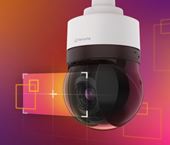Awareness is critical
The services segment within this sector is showing high growth, as they are critical in supporting the proper functioning of software and hardware-based solutions within the multi-factor authentication market. MFA services comprise technical support services that require the effective integration of MFA solutions. Moreover, technical expertise is required to maintain and update MFA hardware and software. The demand for these services is directly related to the adoption level of MFA solutions. Training and education are vital for organisations to maintain the security of their email cloud, endpoints, networks, and application points. Many organisations are providing online training and education services to their customers. Technology advisory and consulting services aim to increase the awareness of MFA technologies with professional services that comprise a highly skilled development team, R&D team, training and education, and extensive expertise to help clients leverage MFA solution offerings. Training and education services are essential because non-IT companies lack the expertise to understand cyber security technologies and secure organisational information.
Two-factor authentication is most popular
Two-factor authentication, often called two-step verification, is a security process wherein the user provides two authentication factors. Two-factor authentication (2FA) has become increasingly essential in the business landscape due to its ability to enhance security in an era of growing cyber threats. Two-factor authentication adds a layer of protection, making it harder for attackers to access a person’s devices and online accounts because knowing the victim’s password alone is insufficient to pass the authentication check. Any two smart cards, PIN, SMS application, tokens, biometrics (iris, face, palm, fingerprints), passwords, and so on can be used to achieve two-factor authentication. 2FA offers a cost-effective security solution for organisations.
Asia Pacific is a strong market
Asia Pacific experiences considerable security spending owing to the ever-growing threat landscape in the region. Asia Pacific is expected to invest more in security due to the increasing threat of identity and access breaches. The region comprises emerging economies like India, Japan, China, South Korea, Australia, and other Asia Pacific countries. Factors such as increasing internet usage, compliance regulation, and adoption of smartphones are the major factors fueling the adoption of MFA solutions in the region.
Asia Pacific is increasingly targeted by cyber criminals using advanced and sophisticated attack vectors. These attacks often aim to compromise sensitive data, disrupt critical infrastructure, or steal financial assets. MFA acts as a formidable defense against such attacks by adding a layer of security. BFSI is the most targeted vertical in Asia Pacific regarding identity fraud. The proliferation of digital banking services and the growing preference for online transactions have exposed banks to a higher risk of cyber threats. MFA helps secure online banking by requiring customers to provide multiple verification forms before gaining access to their accounts or authorising transactions.
Major players
Some of the key players identified in the report by the Marketsandmarkets analysts, inclulde; Microsoft, Thales, Okta, Broadcom, Onespan, Micro Focus, HID Global, Cisco, Ping Identity, RSA Security, ESET, Yubico, Forgerock, Cyberark, Onelogin, Secureauth, Oracle, Salesforce, Secret Double Octopus, Silverfort, Trusona, Fusionauth, HYPR, Keyless, and Luxchain.



















